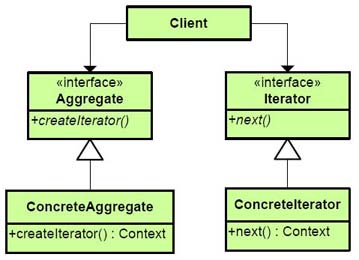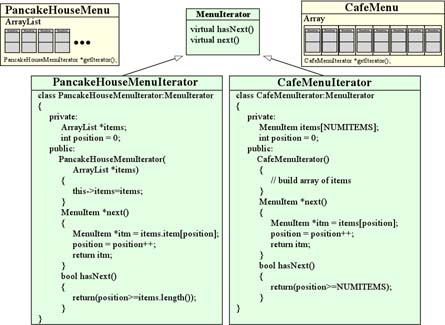


GoF Statement of Intent: |
Provide a way to access the elements of an aggregate
object sequentially without exposing its underlying representation. |
Brief Overview: |
Iterators let you access elements in a collection of objects with functions
like hasNext() to see if there is another object in the collection
and getNext() to get a pointer to that object. This way you have
a common way of accessing all elements without having to know how the
underlying collection is implemented, i.e. list, array, tree, etc. |
|
UML Diagram: |

|

class Waitress
{
private:
PancakeHouseMenu *pancakeHouseMenu;
CafeMenu *cafeMenu;
public:
Waitress(PancakeHouseMenu *phm, CafeMenu *cm)
{
this->pancakeHouseMenu=phm;
this->cafeMenu = cm;
}
void printMenus()
{
MenuIterator *phIterator = pancakeHouseMenu->getIterator();
Iterator *cIterator = cafeMenu->getIterator();
cout << "MENU\n----\nBREAKFAST";
printMenu(phIterator);
cout << "MENU\n----\nLunch";
printMenu(cIterator);
}
void printMenu(Iterator *itr)
{
while(itr->hasNext)
{
MenuItem *menuItem = itr->next();
menuItem->print();
}
}
}